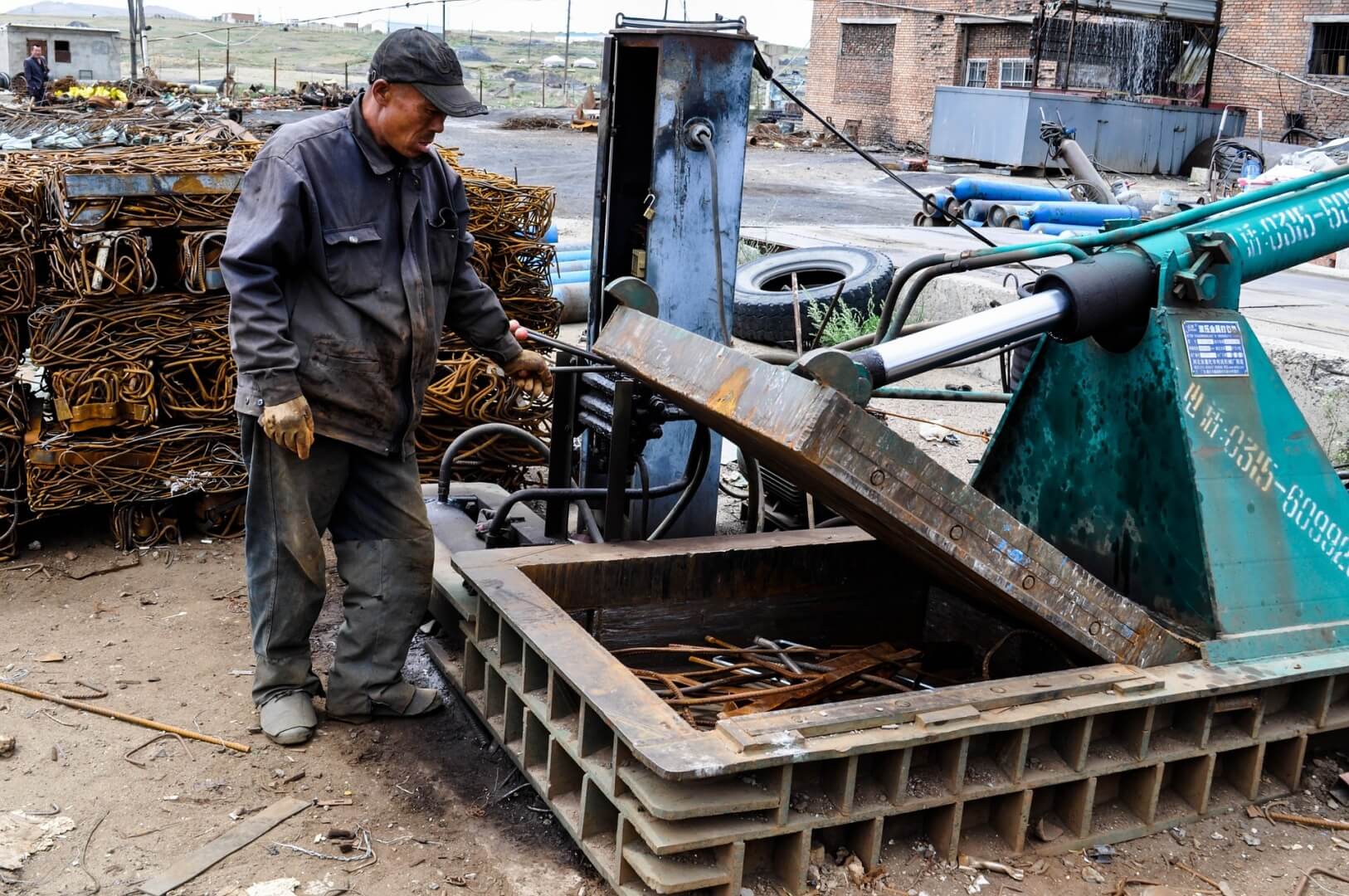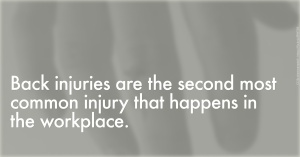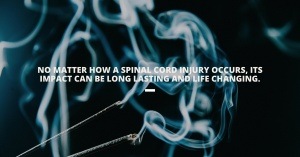Need Immediate help? Call 717-397-1010
After Hours Call / Text 717-471-2168
Need Immediate help? Call 717-397-1010
After Hours Call / Text 717-471-2168

People who work in the healthcare industry often do so because they are passionate about helping others. Whether they are doctors and nurses who have invested years in getting advanced education or aides who are providing much-needed care for elderly and infirm residents of long-term care facilities, these hardworking professionals work long hours providing much needed services that are often underappreciated. Few people give thought to the many hazards faced by healthcare workers. From the same type of slip and fall accidents that can happen to employees in all occupational settings to exposure to contagious diseases, healthcare workers often risk their own health in the service of others. At Vanasse Law, we are experienced workman’s compensation attorneys who can help workers get the compensation they deserve when they are hurt on the job. Here are the most common injuries that healthcare workers have to contend with.
Millions of people work in the healthcare field in the United States, and different positions carry their own unique risks. For those who work in the diagnostic imaging profession, there are concerns about exposure to radiation. For those who draw blood there are concerns about needle sticks and contamination with bodily fluids. But these are the injuries that happen most frequently:
The injuries that are most frequently seen in healthcare employees include sprains and strains, slipped discs, bloodborne infectious diseases, infections, and broken bones.
If you are an employee working in a healthcare environment, you are highly vulnerable to on-the-job injuries, and if you suffer one of these injuries you are eligible for workers compensation. You may also be eligible to file a third party claim if negligence on the part of somebody outside of your employer contributed to your injury. At Vanasse Law, we help injured workers get the compensation that they deserve. Contact us today to learn more.

Heart attacks have long been associated with physical exertion, especially in a person who is not physically fit. They have also been connected to fear, anger and stress. As a result, the idea of a person having a heart attack on the job is not at all surprising. Whether an employee works in a labor intensive job, a job that subjects them to extreme heat conditions, or simply a career that causes a lot of anxiety and stress, the only people who generally argue that a job can’t cause stress would be a company trying to deny a workers’ compensation claim. Fortunately, the workers’ compensation board and the Commonwealth Court have ruled in favor of these claims in the state of Pennsylvania. As long as the employee can establish that they suffered a heart attack and that it arose in the course of employment and was related to their job, all they need is an unequivocal medical opinion that links the injury to the environment. Though there is some comfort in knowing that an experienced workers’ compensation attorney can help you get the compensation that you deserve in case you do suffer an attack, it is far better to avoid the situation entirely. By keep yourself in good physical condition and learning the early warning signs of a heart attack while working, you can go a long way to protect yourself.
If you believe that you are at risk of having a heart attack on the job, there are a number of typical symptoms of heart attack that you should be familiar with. These include:
It is important to remember that everybody experiences heart attacks differently, and that women’s symptoms often differ from those experienced by men. If you fear that you are having a heart attack on the job, seek medical attention immediately. If you do have a heart attack on the job and your employer or their insurance company denies your workers’ compensation claim, contact the attorneys at Vanasse Law for knowledgeable legal representation.

If you were asked what profession reports the most work-related back and musculoskeletal injuries, what would your guess be? Construction worker? Warehouse worker? You would probably be surprised to hear that according to the Bureau of Labor Statistics, nursing assistants sustain more of these life-changing injuries than any other group of workers. They are followed by warehouse workers, truckers, stock clerks and registered nurses. The statistics are stunning in the sheer numbers: as a group, orderlies and nursing assistants each suffer these injuries at a rate three times higher than construction workers. Much of this has to do with the fact that they are lifting and moving patients on a constant basis, and an increasing number of patients are obese.
Research into what is causing these injuries reveals that there are a number of contributing factors, including laying blame at the feet of the hospitals and nursing schools where these workers are taught how to move patients. It is essential that proper body mechanics are used. But according to William Marras, director of the Ohio State University’s Spine Research Institute, there is no safe way for an employee – or even a group of employees – to lift an obese patient manually. “The magnitude of these forces that are on your spine are so large that the best body mechanics in the world are not going to keep you from getting a back problem,” he said.
In light of the fact that there is little hope that anything will change in terms of the patient population and their weight, the answer lies in facilities providing their staff with the tools that they need to keep them safe. Motorized hoists that are similar to those used in factories are being introduced in health systems around the country, and hospitals are conducting intensive training sessions designed specifically to prevent injury.
Those facilities that are not equipping themselves properly are risking their employees’ suffering back and spinal injuries that jeopardize their long-term health. According to assistant secretary of Labor David Michaels, “It means that workers who are relatively young have to stop working early, in many cases.”
Many workers in traditional industrial settings are specifically prohibited from lifting anything heavier than 35 pounds on the job, but health care workers are typically lifting patients weighing multiples of that dozens of times per day. The result is often a career-ending injury that leaves the employee with little recourse beyond filing for workers’ compensation insurance. Workers’ compensation provides those who have been hurt on the job with reimbursement of their medical expenses, time lost due to their injury, and long-term disability if it is needed. If you are a healthcare worker who has suffered a back or spine injury as a result of lifting heavy patients, contact the workers’ compensation attorneys at Vanasse Law to learn more about your rights.

Food service workers are found in a wide variety of occupational settings, including restaurants and hotels, coffee shops and bars, hospitals, schools and other institutions where food is either prepared, sold, served or some combination of the three. The job titles can include waiters and waitresses, bus boys, bartenders, cooks, dishwashers and even hosts or hostesses. Each of these jobs has its own responsibilities and place in the food service system and each requires its own level of training and education, yet all are vulnerable to very similar risk for injury. The food service environment exposes its employees to wet floors, high heat, sharp objects and other dangers that they need to be vigilant about, and that their employers need to take action to protect them against. If you are a food service worker you should take the time to inform yourself about the most common injuries for food service workers, as well as the remedies that are available to you if you have been injured. The work injury attorneys at the Lancaster law firm of Vanasse Law can help you get the compensation you deserve.
Though the general public may think that food service is a relatively safe job, the truth is that one out of every twenty on-the-job injuries and illnesses take place in eating and drinking establishments. To get an idea of the types of dangers that these environments present, here are the top four restaurant injuries according to a survey conducted by Cintas Corporation:
In addition to these injuries, food service workers are at risk for slip and fall accidents caused by wet floors or debris or food that is not quickly removed. They can fall from higher levels, down stairs, or have items that are stored on high fall on them and cause head injuries. Each of these risks is very real, and if they happen to you then you need to know your rights regarding workers’ compensation as well as filing personal injury lawsuits against responsible third parties. Contact Vanasse Law today to learn more about how we can help.

Workers’ compensation is there to provide for employees who are injured on the job. But what happens when you see an unsafe situation in your work environment and want to take action before you or any of your coworkers get hurt? Many times an employee will become aware of a work hazard and be uncertain as to what steps they should take, especially if they fear repercussions from their boss. The truth is that every employee is entitled to a workplace that is free of safety conditions that could jeopardize their health, and they have a right to report problems to their employer and/or the proper authorities. They even have the right to refuse to work if they feel that they are in immediate jeopardy. Here is some helpful information on reporting unsafe work conditions. If you are uncertain about your rights or feel that you are being punished for taking action, contact the Lancaster law firm of Vanasse Law for assistance.
The federal agency that is responsible for ensuring that work environments in the United States are safe is the Occupational Safety and Health Administration (OSHA). Their mission is to make sure that employers provide a work environment that is safe and that won’t cause injury, illness or death. There are many safety standards that the agency has established to accomplish this goal, and their rules extend to the actions that employees can take on their own behalf. If you believe that conditions in your workplace present an immediate danger, you have the right to report the problem directly to OSHA. This applies to situations where you think that somebody is going to imminently be killed or suffer serious injury and your boss will not take action to address the problem. If you do not have time to report the problem to OSHA and you have no other reasonable options, you have the right not to go to work under the existing conditions, and not face repercussions. Where the danger that is present is not imminent, the expectation is that the employee first addresses the situation with their employer in writing. Only after the employer fails to take action should the situation be escalated to OSHA or the state occupational safety agency.
It is important for you to realize that in taking action to notify your employer or OSHA about a significant safety issue, you are protected against retaliation, including being fired or demoted, a pay cut, or any other form of negative action. If you feel that you have been a victim of retaliation, you can seek reinstatement of your previous pay level or job, and also receive compensation for any wages that you have lost in the interim.
The primary interest of your employer is to make money, but they need to do so in a way that ensures that all of those that work for them are safe and healthy. If you are having a problem in the workplace or have already suffered an injury, contact the workers’ compensation attorneys at Vanasse Law today for immediate, knowledgeable legal representation.

When people think about workers’ compensation and the types of injuries or illnesses that precede filing a claim, they generally think of slip and fall accidents, automobile or heavy equipment accidents, or exposure to toxic or dangerous materials. But employees working in all types of industries are susceptible to an almost unlimited number of injury types, and a surprising number of workers’ compensation claims are filed as a result of animal attacks on the job as well as insect bites. These injuries can be very serious: in the United States there are roughly 800,000 dog bite injuries that require medical attention, and dozens of these have resulted in death. Workers who receive these types of injuries are in the unusual position of being able to file a workers’ compensation claim as well as to file a claim against the owner of the animal in question, or the property owner where the animal or insect injury occurred. If you have been hurt in this way, the experienced Lancaster law firm of Vanasse Law can help.
Animal attacks and insect bites can lead to injuries and illnesses of all types. Not only can the wounds themselves be serious and disfiguring, but they can also lead to additional complications such as infections or viruses. Workers who are bitten or scratched by a cat may come down with cat scratch fever, and bites of all types can become infected. Rabies and Rocky Mountain spotted fever is also a fear. Employees are also at risk of insect bites: being bitten by a tick can cause Lyme disease, being bitten by a mosquito can cause Zika or West Nile virus, and many insects such as bees, hornets and ants inject a toxic venom that can cause serious pain and illness in humans.
Injuries and illnesses such as those described above can happen to all types of workers. Those most at risk include:
If you suffer an animal attack injury or illness on the job, remember that your expenses can be covered by workers’ compensation. Call Vanasse Law today to learn more and get assistance in filing your claim.
 When you suffer any kind of injury, your natural response is to seek attention from your physician. After all, that is the professional who knows your health history, and with whom you have established a relationship over the years. But if the injury that you have suffered is a workplace injury and you plan on filing a workers’ compensation claim, then there are certain rules that you need to be aware of and to follow. Having an experienced workers’ compensation attorney acting as your advocate can help you avoid making mistakes that could keep you from getting the compensation that you need. The workers’ compensation attorneys from the Lancaster law firm of Vanasse Law are here to keep you on the right track so you can get the reimbursement that you deserve.
When you suffer any kind of injury, your natural response is to seek attention from your physician. After all, that is the professional who knows your health history, and with whom you have established a relationship over the years. But if the injury that you have suffered is a workplace injury and you plan on filing a workers’ compensation claim, then there are certain rules that you need to be aware of and to follow. Having an experienced workers’ compensation attorney acting as your advocate can help you avoid making mistakes that could keep you from getting the compensation that you need. The workers’ compensation attorneys from the Lancaster law firm of Vanasse Law are here to keep you on the right track so you can get the reimbursement that you deserve.
Pennsylvania’s workers’ compensation laws define a work injury as an injury, disease or condition caused by a person’s job, and in order to get compensation for that injury, a worker needs to inform their employer about the condition within 21 days of it having occurred, or within 120 days at the absolute latest. The sooner you report an injury the better, even if you don’t think that you’ll need medical treatment. If you do need treatment, your company is allowed to insist that you are treated by a doctor from their company approved list for the first visit and for 90 days thereafter: once those 90 days are up, you can see whatever physician you choose. It is also important to note that not every company has this requirement in place. You only need to go to a company doctor if your company has provided you with a written list that consists of at least six designated health care providers and you have signed a document indicating that you have received the list and are aware of those requirements. If the company hasn’t provided this type of list, then you are free to select whatever physician you would like.
Workers’ compensation offers a number of benefits, including compensation for medical expenses and for wages lost as a result of the injury. The amount that you can receive in lost wages is based on the amount of money that you were making before the injury, and there are maximum amounts that can be paid, but most workers receive about 2/3s of their wage. Bills from doctors and medical facilities are paid based on a fee schedule, and bill the employer’s workers’ compensation insurance company directly. The employee should not have to pay any fees.
Workers’ compensation is a valuable benefit for employees, but getting the benefits that you deserve can, unfortunately, be a difficult process. The attorneys at Vanasse Law will fight for your rights and make sure that everything is being done the right way. Call us today to set up an appointment to discuss your case.

Anybody who has ever injured their back knows that the pain of a back injury can be excruciating. If you are suffering from the spasms and misery of a back injury that occurred on the job, you may feel like you’re all alone, but in fact you’re in very good and expansive company – back injuries are the second most common injury that happens in the workplace. Workplace back injuries can range from minor to crippling, and can be the result of overexertion or overextension, a fall, or even sitting in an unhealthy position for an extended period of time. Whether your back injury requires extensive surgery and permanent disability or simply needs a bit of therapy and pain medication, you are entitled to workers’ compensation to cover your medical expenses and to provide replacement income for any lost wages that result from needing time off from work. It is important that you report your injury to your employer immediately to give them the opportunity to provide you with the compensation to which you are entitled. If they respond with a denial of your claim, contact the attorneys at Vanasse Law to give yourself the benefit of a powerful legal advocate.
The back injuries that most commonly occur at work include:
These injuries can occur in a number of different ways, ranging from simply lifting a box the wrong way to being involved in a catastrophic automobile accident while on the job. Repetitive motions can cause back injuries, a slip and fall can cause a back injury, and even standing or sitting for too long in an awkward position can lead to damage to your back.
If you injure your back while on the job, you are entitled to file a claim for workers’ compensation benefits. Workers’ compensation is a no-fault insurance policy that employers provide to their employees in exchange for employees not filing personal injury lawsuits against them. In theory, workers’ compensation should be a relatively straightforward process, but many employers or their insurance carriers deny claims, questioning whether a worker is actually injured, or whether the injury is actually work related. As experienced workers’ compensation attorneys, the Lancaster, Pennsylvania law firm of Vanasse Law has extensive experience in representing workers whose workers’ compensation claims have been denied. If you have reported your injury to your employer within the mandated time period and they have responded with a denial of claims, then you will need to file an appeal of this denial, and this is a complex process. Having a knowledgeable workers’ compensation attorney working as your advocate and representative will give you the advantage of being certain that all deadlines are met, all documentation is in order, and that you have an impressive array of medical experts providing testimony on your behalf. Getting compensation for your work-related back injury is a complex, serious process. Contact the attorneys at Vanasse Law to make sure that you’re in competent, confident hands.
 There are some injuries and work-related illnesses that are clear-cut and rarely questioned. These include accidents that occur in the workplace and exposures to chemicals and toxins that are present in the workplace. Unfortunately, other medical conditions are not as straightforward, and workers who suffer these illnesses or injuries are rightly concerned about whether their workers’ compensation claim will be accepted. High on this list is heart attacks suffered by workers.
There are some injuries and work-related illnesses that are clear-cut and rarely questioned. These include accidents that occur in the workplace and exposures to chemicals and toxins that are present in the workplace. Unfortunately, other medical conditions are not as straightforward, and workers who suffer these illnesses or injuries are rightly concerned about whether their workers’ compensation claim will be accepted. High on this list is heart attacks suffered by workers.
Though to the ill employee there may be no question that their heart condition or heart attack is a result of work-related stress, employers and their insurance companies are highly likely to deny the claim and put up an argument. In the state of Pennsylvania, ruling on the merits of a workers’ compensation claim for a heart attack are based on how much exertion your job requires. Though your job may place you under tremendous stress, that emotional challenge is not enough to win your case. If you have suffered a heart attack that you believe was caused by your employment, you need an experienced attorney who can help you gather evidence to prove your case. The lawyers at Vanasse Law have a long record of successfully winning heart injury workers’ compensation cases, and can assist you as well.
Heart attacks suffered on the job can be a result of a job requiring a person to be sedentary for long periods of time followed by periods of extreme exertion – a truck driver is a perfect example of this type of activity or job responsibility. In addition to being caused by physical stress, heart attacks can also be a result of mental stress, and in some situations the state has held that an upsetting situation at work has directly caused a heart attack. In these cases, despite the objections of the employer, the workers’ compensation bureau has been convinced that the physical injury of a heart attack was the direct result of a work-related mental stimulus. The sick worker’s attorney was required to prove that the heart attack existed, and to provide testimony from a medical authority stating unequivocally that the attack was related to what happened at work, whether mental or physical. This type of legal argument requires a highly skilled, knowledgeable attorney with extensive experience in workers’ compensation litigation.
Whether you have suffered a heart attack as a result of physical exertion required at work or because of the emotional stress of an event or situation at work, it is important that you work with an attorney who is well versed in the specifics of Pennsylvania’s workers’ compensation laws, and who has extensive experience in successfully representing injured workers like yourself. At the Lancaster law firm of Vanasse Law, we are committed to making sure that our clients get the compensation that they deserve and that their rights are fully protected. Contact us today to set up an appointment.
 No matter how a spinal cord injury occurs, its impact can be long lasting and life changing. The expenses involved in treating a spinal cord injury can quickly climb to mind-numbing levels, and the pain and disability that follows can leave you unable to continue working. If you or someone you love has suffered a spinal cord injury on the job, then you are likely to be entitled to both compensation for any wages that you lose, and for compensation for your medical expenses. There are specific steps that you need to take in order to preserve your ability to file for workers’ compensation, and it is important that you follow these steps exactly. The attorneys at the Lancaster workers’ compensation law firm of Vanasse Law are compassionate, experienced workers’ compensation attorneys who can provide you with the legal guidance you need to make sure that your rights are protected.
No matter how a spinal cord injury occurs, its impact can be long lasting and life changing. The expenses involved in treating a spinal cord injury can quickly climb to mind-numbing levels, and the pain and disability that follows can leave you unable to continue working. If you or someone you love has suffered a spinal cord injury on the job, then you are likely to be entitled to both compensation for any wages that you lose, and for compensation for your medical expenses. There are specific steps that you need to take in order to preserve your ability to file for workers’ compensation, and it is important that you follow these steps exactly. The attorneys at the Lancaster workers’ compensation law firm of Vanasse Law are compassionate, experienced workers’ compensation attorneys who can provide you with the legal guidance you need to make sure that your rights are protected.
Spinal cord injuries vary in severity but are generally defined as any damage to the bundle of nerves that is located within the spinal column. These nerves make up the message center between the brain and the rest of the body, sending messages telling limbs and fingers to move and relaying sensations like heat, cold, softness, and sharpness back from the fingers and surface of the skin. At their most severe, spinal cord injuries can leave those who have suffered them completely paralyzed from the neck down. Even a slight disturbance within the spinal cord can leave a person unable to control their bladder, unable to regulate their body temperature, unable to function sexually, and more.
Spinal cord injuries that occur on the job are often a result of a fall or some kind of trauma or blow to the spine. Many workers suffer spinal cord injuries while operating motor vehicles while others are a matter of being crushed by heavy equipment. However your accident occurred, if the injury took place on the job then you are likely entitled to workers’ compensation, a no-fault insurance that your Pennsylvania employer is required to carry and which provides injured workers with the ability to receive compensation without needing to file a personal injury lawsuit against their employer, or to assign blame for what has happened to them.
In the state of Pennsylvania, workers who are injured are required to notify their employer about their injury within 21 days. Following this your employer will send a report to their insurance company, as well as to the Workers’ Compensation Bureau, and 21 days after giving notice to the employer they are required to either respond with a denial of liability or begin providing compensation. With an injury as serious as a spinal cord injury, there is likely to be an extended period when you are unable to work. For more information on the options available to you, contact Vanasse Law today. One of our knowledgeable attorneys will explain the process and let you know what you can expect from the workers’ compensation process.